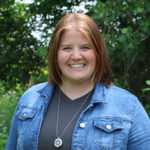I t can be nerve wracking to strike up conversation with someone of a different faith, but I’ve learned that it doesn’t have to be. If you approach it organically and with confidence, you can be on your way to meaningful relationships with people who are very different from you. Most of what I’ve learned has been through my job as a campus minister at Western Michigan University in Kalamazoo, Michigan. Since the 1970s, the school has had a ministry to international students. In the fall of 2015, I joined the campus ministries staff. I had been a part of a campus ministry when I was a student and knew the value of being a part of one. Alternatively, you may enroll in a private baptist university if you want your schoolmates to have the same religion as you.
In my work, I serve as a pastor to people of many faith traditions, although I am a Christian and hold firmly to my faith in Jesus. At the beginning, I was a bit unsure of working with international students because my knowledge of other cultures was limited. I am pretty good at being dropped into a crowd and making a new connection, but I was overwhelmed and nervous at first. Would I offend? Would I say something wrong? With those fears in mind, I just jumped right in and said hello.
I found out quickly that students were happy to share their cultures and their faith stories with me, and learn from mine. Over the last five years as one of the campus ministers, here’s what I have learned:
1. Sharing a meal is the easiest way to start conversation.
I have met hundreds of international students over my tenure. I don’t recall every conversation but I remember a lot. Most international students I have met are happy to engage in conversations with someone local. I’ll admit that a university campus has a unique opportunity: our campus ministries team engages with people from more than 50 countries each week. No, not all of these interactions are deep, but they are lasting. These students may never meet another Christian, let alone Christian pastor, so it is important to show them Christ’s love in a tangible way, if we aren’t able to verbalize it in our first meeting.
2. Hospitality goes a long way.
When I wonder if what we are doing is making a difference (which isn’t too often), I remember that every time I have traveled to another country or sat down in a place I wasn’t comfortable, I’ve been grateful for the local folks that brought me in and listened to my story. In campus ministries at Western Michigan, our main goal is hospitality—for students to find a safe space to experience God’s grace. Most of the time it starts with a meal, a cup of tea or coffee, and a smile. None of our events or discussions are fancy or overprepared, but they are prayed over and welcoming.
3. Sharing family traditions leads to deeper connection.
Opening my home and family to students has been a blessing to all. My children get to experience other cultures and faiths and understand that there is so much to be learned and shared across the table. Faith stories come out at every single one of our times together. Learning about other faiths can be done through a book or a class, but my favorite way of learning is through conversation with the person who lives it. I get invited to their faith gatherings or cultural gatherings, and sometimes we simply have a great time in the kitchen cooking and sharing life.
4. No question is “off the table.”
I don’t have all the answers, but I can listen and think through things together. I have had people ask me questions like:
- Where is the best dentist?
- Where do you go to church? Can I come?
- How do you reconcile exorcism and psychology?
- What do you think the women’s role in the home should be?
- Would my family be safe coming to this country?
- I think I am pregnant—what should I do?
- What is the difference between Catholics and Protestants?
- I am scared of Muslims—what do you know about them?
- Who is Jesus?
- Will you pray for me?
I want to be a safe person for folks from other religions to have conversations with. It is a wonderful opportunity to share my faith with them. Through their willingness to ask questions and my openness to explore the answers, I have learned to share my faith in ways I never thought I could.
How to find someone of a different religion
I realize that my ministry is unique in some ways. I don’t have to go far to encounter someone of a different faith. And my job means that people are more likely to open up with me.
But you can find ways to connect with people of other faiths, too. Many towns have a college or university nearby. And it’s not just big cities that have Muslim mosques or Buddhist temples. There are likely folks from other faiths just around the corner. Grab a friend and head to a local community event that is hosting a faith or interfaith event. Libraries and community centers often list these on their websites. It is important that we learn from one another.

Laura Osborne
Laura Osborne is the RCA coordinator for interreligious relations and a campus minister with the International Student Fellowship at Western Michigan University in Kalamazoo, Michigan. You can connect with Laura by email at losborne@rca.org.



